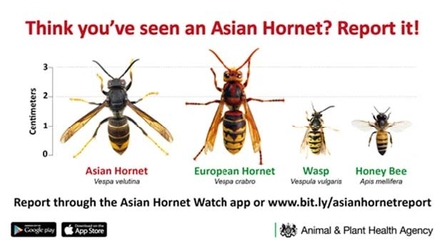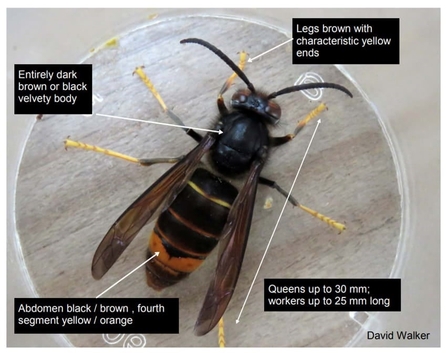In 2004 the Asian (Yellow Legged) Hornet, Vespa Velutina, arrived in Bordeaux France from China in a container of pottery. Since then, it has spread throughout Europe, from Portugal to the Netherlands. It was first spotted in the UK in 2016 on the South coast and a small number of nests have been identified and destroyed each year since. 2023 saw a huge change when 78 nests were discovered in South East England!
There are reports of the hornet as far north as Scotland. A credible sighting reported in January in Kent this year sparks fears that the non-native insect may have become established in the UK.
What’s the problem?
This Hornet is a meat eater and has a voracious appetite for all pollinators. It hunts and kills bees, wasps, butterflies and all sorts of similar insect life to provide protein (meat) to feed its young. One Asian hornet can kill 30 – 60 honeybees every single day! They can therefore have catastrophic consequences for our native bees and pollinators. In France, where a population of invasive hornets have become established with half a million recorded nests, the cost of the hornet to the French economy is estimated to be in excess of £26 million every year.
We still have an opportunity to restrict the impact of this invasive species on our wildlife in the UK and here’s how you can help.



